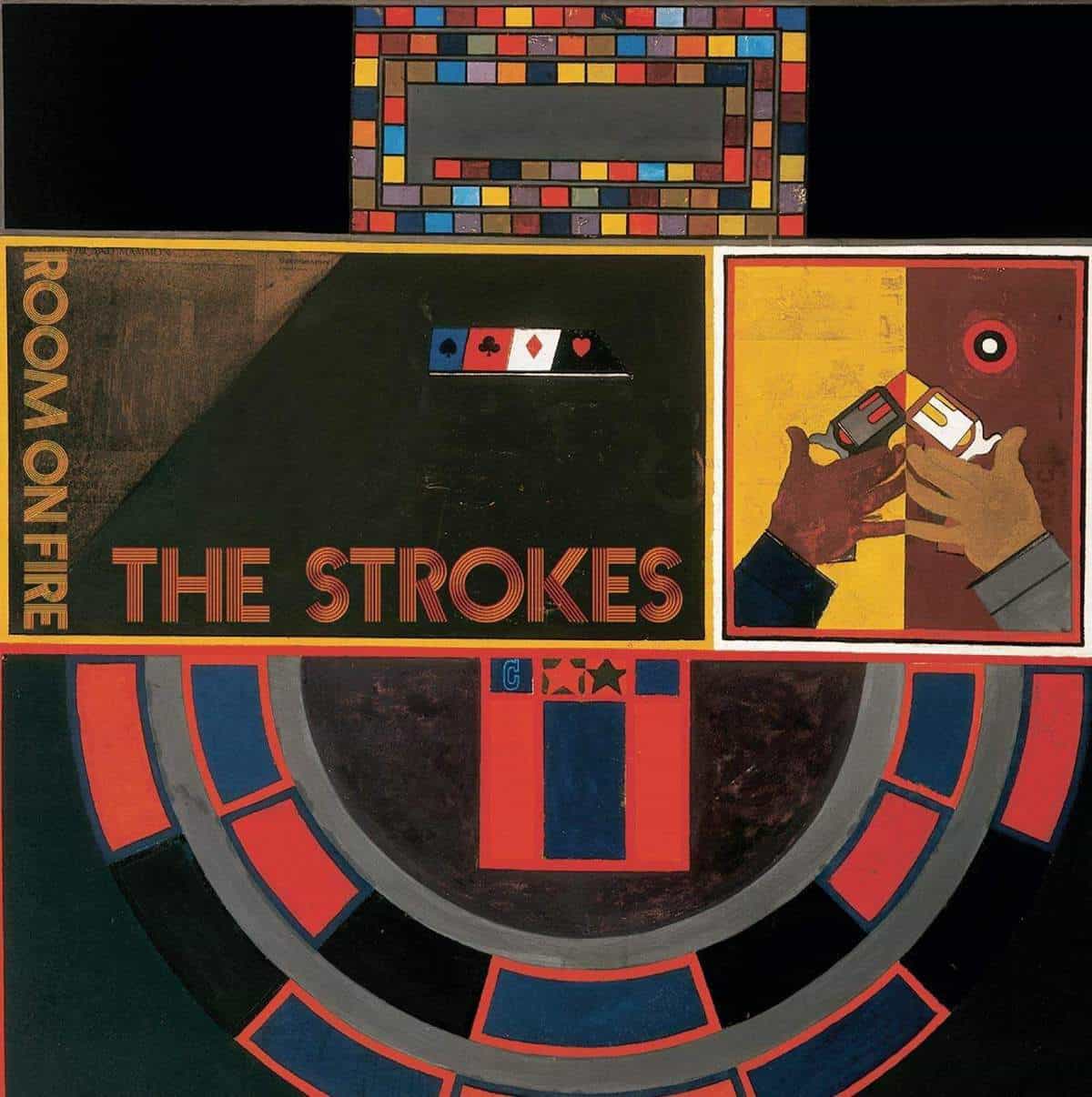The Strokes’ sophomore album Room on Fire turns 20
Few albums sent waves through the music scene as The Strokes’ debut album Is This It. The short, frantic album composed of rhythmic guitars, driving basslines, and drum patterns alongside the unmistakable gritty vocals of Julian Casablancas crashed onto the scene in 2001. It instantly made the band a massive success. There was a timeless nature to them as they draw inspiration from the Doors and The Velvet Underground, yet something that was so of the moment in it. It made a name for them undoubtedly, being among the first to rise out of the 2000s rock scene alongside The Yeah, Yeah, Yeahs, The Mouldy Peaches, and The White Stripes. However, the question arises: how do you follow up such an album, with the hefty expectations of having an era-defining album as your debut?
The early work of The Strokes is so catchy and appealing that it’s hard to critique
The answer is Room on Fire. Produced by Gordon Raphael, best known for his work with Radiohead, the album is everything that would be expected from an album by The Strokes but notably more laid back than their previous album. The band deliver a similar turnout to their last album as they craft songs around the same features that defined their previous work – prominent guitars and gritty vocals are present all but in a notably more casual form of delivery. Not that this form of delivery should be seen as a slight against the band, as a contemporary Pitchfork review stated, “The Strokes seem almost pathologically unable to write a song that isn’t immediately catchy”.
A clear example of this is the song ‘12:51’-a song that details the escapades of a guy who is flirting with a girl and that she should “kiss me now that I’m older / I won’t try to control you” set to twinging lead guitar and a repetitive drum pattern. There’s a familiarity to it, listening to Casablancas detail this night – maybe it sounds like the last album or maybe it sounds like a song you heard years ago, either way, you don’t really mind. The early work of The Strokes is so catchy and appealing that it’s hard to critique even when it seems so similar to what they just released. ‘You talk way too much’ operates in the same vein as ‘Alone, together’ or ‘New York City Cops’ as Casablancas cries that “you talk way too much / It’s only the end” about a girl he’s with and clearly likes but is also slightly aggravated by set to all the elements that would define The Strokes musical output in the early days out of their career.
It has managed to stand the test of time
A clear standout on the album is the song ‘Reptilia’. It is where the album really comes alive amongst the more laidback songs. The drums are fast and moving, accompanied by a driving bassline alongside it. Casablancas manages to articulate the concept of ‘Reptilia’, the part of the brain that deals with simple emotions like love and hate, as he details a complex relationship with a girl and relying on drugs and alcohol in the New York music scene. This sentiment is most clearly embodied by him screeching the line “the room is on fire as she’s fixing her hair”, which blends the despair that is gripping him alongside an appreciation for the mundane things he loves about this girl. However, despite the strengths of all the different elements of the song, it is all underpinned by the power of the guitar riff. The song’s solo allows it to display all its power as these flurrying chords ascend and descend over and over in a truly magnetic manner. This guitar sits at the centre of the song and underpins all its capabilities as it marks ‘Reptilia’ as one of the best songs on the album, if not in The Strokes’ entire discography.
Whilst Room on Fire doesn’t reinvent the genre or The Strokes’ image as a band, it manages to deliver a strong album of early 2000s indie rock. It has managed to stand the test of time, particularly in comparison to its contemporaries. The album is short and engaging, delivering all of the key elements that made The Strokes the adored band they are in a slightly more laid-back manner than their hectic first album. Sure, it’s a bit derivative of their earlier work but when what you are drawing inspiration from is an album like Is This It, that doesn’t seem like much of a concern as you allow yourself to enjoy the album.

Comments (3)
Nigel*
Nick Godrich didn’t produce room on fire. Stopped reading as soon as I saw that
Nigel Godrich didn’t produce the album. For starters.